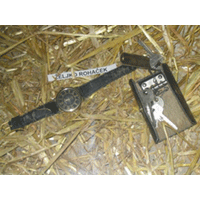25 Years Since Crime at Ovčara Victims’ trust in domestic judiciary is betrayed
 November 20th 2016 marks the 25th anniversary of the crime committed at „Ovčara“ farm near Vukovar, when members of the local territorial defense unit (Teritorijalna odbrana – TO) and Serb volunteers under the command of the Yugoslav People’s Army (JNA) killed 265 Croatian civilians and prisoners of war. The Humanitarian Law Center (HLC) on this occasion would like to remind the public that the trial of this case before the domestic courts has not yet been finally completed, even after more than 12 years.
November 20th 2016 marks the 25th anniversary of the crime committed at „Ovčara“ farm near Vukovar, when members of the local territorial defense unit (Teritorijalna odbrana – TO) and Serb volunteers under the command of the Yugoslav People’s Army (JNA) killed 265 Croatian civilians and prisoners of war. The Humanitarian Law Center (HLC) on this occasion would like to remind the public that the trial of this case before the domestic courts has not yet been finally completed, even after more than 12 years.
Immediately after the fall of Vukovar, on November 20th 1991, members of the JNA took the wounded, sick, civilians and members of the Croatian armed forces from Vukovar hospital to hangars at Ovčara farm, located about 5 km southeast of Vukovar. From the moment of their arrival at Ovčara, members of the Vukovar Territorial Defence and the „Leva supoderica“unit, composed mainly of volunteers from the Serbian Radical Party, beat, humiliated and abused the detained Croats in the presence of the JNA military police. In the evening hours, the JNA soldiers withdrew from Ovčara on orders issued by Colonel Mile Mrkšić, whereas the members of the Vukovar Territorial Defence and the „Leva supoderica“ paramilitary unit took the detainees out of the hangars in groups of 10 to 20 people, during the night between the 20th and 21st of November 1991, to a location at the village of Grabovo, where they opened fire on them in front of a pre-prepared mass grave. Among the victims who were killed at Ovčara were not only wounded members of the Croatian armed forces, but also civilians, women and children: Ružica Markobašić (32), who was then heavily pregnant, Janja Podhorski (60), Dragutin Balog (17) and Igor Kačić (16).
200 bodies have been exhumed from the mass grave site of Grabovo, and 193 victims have been identified. 17 bodies have been found in mass graves nearby, while the bodies of dozens of other victims are still missing.
JNA Colonel Mile Mrkšić and Major Veselin Šljivančanin have been sentenced for the Ovčara crime before the ICTY. Despite the fact that the evidence presented before the ICTY unambiguously points to the responsibility of a number of commissioned and non-commissioned officers of the JNA for the events at Ovčara, the indictment of the Office of the War Crimes Prosecutor has only been raised against the direct perpetrators of the crime.
The trial for this crime before a domestic court began on March 9th 2004. This case was also the first trial before the Special Department for War Crimes and a case in which the ICTY ceded extensive investigative material to the local judiciary.
The case was completed on June 23rd, 2010, when the judgment of the Court of Appeals became final. Miroljub Vujović, Stanko Vujanović, Predrag Milojević, Đorđe Šošić, Miroslav Đanković, Saša Radak were sentenced to 20 years in prison, Milan Vojnović and Ivan Atanasijević to 15 years each, Jovica Perić to 13 years, Nada Kalaba to 11 years, Milan Lančužanin to 6 years, and Goran Mugoša and Predrag Dragović to 5 years each. Slobodan Katić, Predrag Madžarac, Vujo Zlatar and Milorad Pejić were acquitted.
However, the Constitutional Court of Serbia issued a decision on December 12th 2013, in which, contrary to its previous practice, it adopted a constitutional appeal by the convicted Saša Radak, finding that his right to a fair trial had been violated. On the basis of this decision, the defense counsel filed a request for the protection of legality to the Supreme Court of Cessation, which this court upheld; and after which, on June 19th 2014, it issued a ruling annulling the final judgment and returning the case to the Court of Appeals for retrial.
The Court of Appeals terminated the serving of sentences for the convicted, and they were released pending trial. The hearing before this court began on June 15th 2015, and it has not been completed to this day.
The inability or unwillingness of the local judiciary to finally resolve this case more than 12 years since the beginning of the trial and 25 years after the crime was committed, represents a paradigmatic example of war crimes prosecution in Serbia: complex cases, with a large number of victims, such as Ovčara, but also Ćuška, Lovas, and Skočić, are stalled, owing to a series of legal-procedural quirks, becoming unintelligible and eventually disappearing from the public eye. Families of victims who were uneasy about trusting the courts in Serbia remain deprived of answers concerning the fate of their closest family members, whilst the perpetrators of these crimes are still not held accountable.






